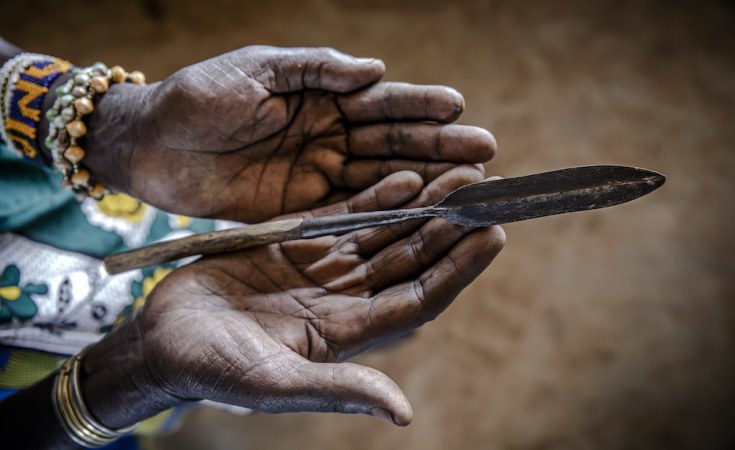Responding to the upcoming vote in Gambia's parliament on 18 March on a bill to reverse the ban on female genital mutilation (FGM), Michèle Eken, senior researcher at Amnesty International's West and Central Africa office, said:
"This bill would set a dangerous precedent for women's rights and tarnish Gambia's human rights record. We urge parliament to vote against it.
"It is very disappointing that after the long fight Gambian activists put up to advance women's rights, parliament is preparing to consider this backward move.
The Gambian government needs to address the root causes and drivers of FGM and implement comprehensive policies for women and girls' empowerment Michèle Eken, senior researcher at Amnesty International's West and Central Africa office
"Female genital mutilation infringes on girls and women's right to health and bodily integrity. Legalizing it would be a violation of the Convention on the Elimination of All Forms of Discrimination against Women (CEDAW), the Convention on the Rights of the Child and the African Charter on the Rights and Welfare of the Child, all of which Gambia ratified. It would also violate the principle of 'equal dignity of the person' guaranteed in the Gambian Constitution.
"Furthermore, the Gambian government needs to address the root causes and drivers of FGM and implement comprehensive policies for women and girls' empowerment to claim and exercise their human rights."
Background
Around 46% of girls aged 14 and younger have undergone female genital mutilation (FGM) in Gambia, according to UNICEF. This percentage goes up to 73% for girls and women between 15 and 49 years of age. FGM can lead to a range of health complications including chronic pain, infections, difficult labour and even death during the mutilation or after.
Since FGM was outlawed in Gambia in 2015, only two cases have been prosecuted and the first conviction for performing FGM was not made until August 2023. Instead of moving forward and enforcing this important law alongside a set of comprehensive policies to empower women and girls to exercise their human rights, parliament is now considering reversing it.


